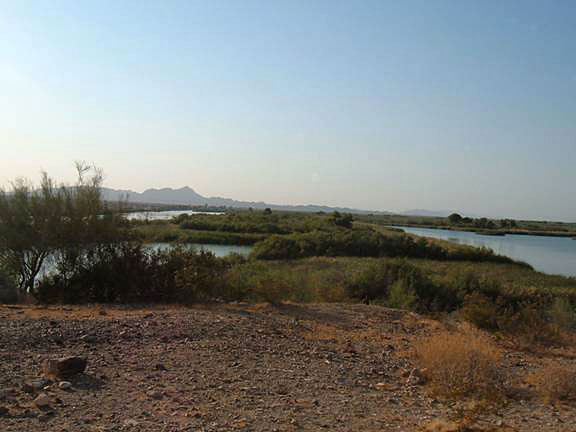Rivers Losing Water Due to Climate Change

The Colorado River, the Yellow River in northern China, the Ganges in India and the Niger in West Africa are losing water, in some cases because of the effects of climate change, a new study finds.
The study examined stream flow in 925 of Earth's largest rivers, and found significant change in about one third of them over the past 50 years. These rivers, all key sources of water for the regions they flow through, were found to be funneling less water through their channels.
"Reduced runoff is increasing the pressure on freshwater resources in much of the world, especially with more demand for water as population increases," said lead author of the study, Aiguo Dai of the National Center for Atmospheric Research in Boulder, Colo. "Freshwater being a vital resource, the downward trends are a great concern."
Most of the studied rivers flow through some of the most populous places on Earth. But several others flowing through more sparsely populated areas, such as those near the Arctic Ocean, where snow and ice are melting rapidly, showed an increase in stream flow through the study period.
Increased flows were the exception rather than the rule though: Rivers with decreased flow outnumbered those with increased flow in the study by a ratio of 2.5 to 1.
While dams and other diversions of water for agriculture and industry affected some of the river discharge, the overall effect of these impacts appears to be small based on previous studies, the authors said. The reduced flows found in the new study instead appeared to be connected to climate change in many cases.
Climate change's influence on river flow comes through its effects on precipitation and evaporation. The authors compared the river discharge changes to previous studies that looked at changes in precipitation and found that areas of decreased discharge matched closely with areas of decreased precipitation (likewise, areas of increased discharge matched those of increased precipitation).
Sign up for the Live Science daily newsletter now
Get the world’s most fascinating discoveries delivered straight to your inbox.
In the United States, for example, the Columbia River's flow declined by about 14 percent over the 50-year period, largely because of reduced precipitation and higher water usage in the West. The Mississippi River, on the other hand, had an increase in flow of 22 percent over the same period because of greater precipitation across the Midwest.
"As climate change inevitably continues in coming decades, we are likely to see greater impacts on many rivers and water resources that society has come to rely on," said study co-author Kevin Trenberth, also of NCAR.
Overall, the study, funded by the National Science Foundation and detailed in the May 15 issue of the Journal of Climate, found that annual freshwater discharge into the Pacific Ocean fell by about 6 percent, or 526 cubic kilometers (126 cubic miles) — approximately the same volume of water that flows out of the Mississippi each year. The annual flow into the Indian Ocean dropped by about 3 percent, while the annual discharge into the Arctic Ocean increased by about 10 percent.
River discharge is important to the oceans because it supplies dissolved nutrients and minerals and affects global ocean circulation.
Though the recent changes are relatively small and may only have impacts around river mouths, the freshwater balance of the oceans should be monitored for signs of long-term change, Dai said.
- Video – Who Pays Most for Earth's Ills?
- Top 10 Surprising Results of Global Warming
- Test Your Knowledge of the Continents










